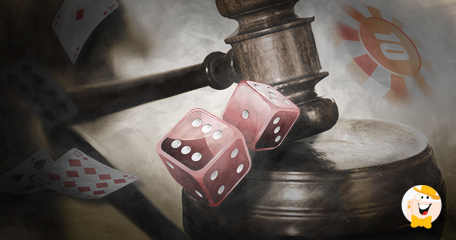
One of my favorite gambling stories involves one “Canada Bill,” Jones who was known as one of the sharpest gamblers and three card monte players in both Canada and the United States. He was from Canada, of course, hence the nickname.
My favorite Canada Bill story doesn’t have anything to do with him running a game on someone else, but rather, having a game run on him in the little town of Cairo, Illinois. It’s hard to say whether or not my favorite story was part of an act he was playing which would later result in him running a game, and there’s even some disagreement as to whether or not Cairo is the location that the story happened.
True or not, correct or inaccurate, the story describes a hardcore gambler perfectly. Canada Bill was supposedly playing a Faro game in some small town somewhere that was crooked as Hell. Faro is a simple game of luck upon which several different bets can be made, but the majority of the available bets have a house edge of well under one-half of one percent.
The story goes that the game in question would jump out as being crooked to anyone, but especially to a sophisticated riverboat gambler and all around sharpie like Canada Bill. George Devol, another renowned and infamous riverboat gambler and card sharp happened into the game and almost immediately noticed it was crooked. He informed Canada Bill of that fact and Canada Bill responded with, “Of course I know it’s crooked, but it’s the only game in town!”
The fact of the matter is that most games, if not crooked, are going to present a greater house edge against a player if they have not been legalized and regulated by a given jurisdiction. There are honestly only two exceptions I can think of, so let’s get those out of the way:
The Numbers Games:
I have heard tell that some wiseguys here, there and everywhere used to run some numbers games back in the day and perhaps still do somewhere. The way I have heard the story go is that they would pick some event at a prescribed time that was essentially random, such as the last three digits of the New York Stock Exchange, and you could buy a ticket with your numbers for a dime. If you won, then you got paid $7.50 and if you lost, then you lost the dime.
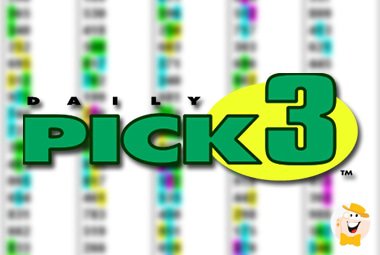
I have also heard that they worked this with nickels as well as dollars.
Most people would recognize the rules as being similar to the Daily Pick Three in those states or countries that have that or the equivalent. The major exception is that the Daily Pick Three usually does not return as well as the numbers game that the wise guys would run. In fact, the wise guys would be embarrassed to offer such bad odds for the player.
Home Poker:
Another exception is home poker as long as you know the game is fair. If you play in a casino poker tournament, generally speaking, the casino is not going to pay out 100% of the monies that go into the tournament but will take a cut out for managing the tournament. Furthermore, when it comes to live cash poker games, the casinos take a rake out of every pot.
In the case of a fair home game, it is truly a matter of some luck (but mostly your skill) versus the skill of the players around you. In fact, such a game would be perfectly legal in many states as long as the person hosting the game (and nobody else, either) is not taking a rake out of the pots. The specific laws vary from state to state and can often get somewhat complicated. For instance, some of the laws essentially say that the person hosting the game cannot make money on the game even as a player, but can act as a dealer for free.
The Only Other Advantage:
I’m personally not the type to outright swindle someone, and I recommend that you don’t do any such thing either, but the only other advantage to non-licensed and non-regulated games that I can think of is that there are many states in which gambling debts are not enforceable. In fact, it is the law in many states that a person can actually bring suit to recover any monies that a different person won off of the first person by way of an unlicensed and unregulated game.
Of course, this sort of thing is only going to work once before you have a reputation that follows you around. I would also imagine that your circle of friends will not be your circle of friends much longer if you sue your buddy for money that you lost to him gambling!
Other than these three potential situations, I can think of no other (or very obscure) situations in which one would benefit from an unlicensed and unregulated game. With that said, let’s take a look at some of the games that go on right now that should be legalized and regulated at all times and in all places:
Sports Betting:
Beyond a shadow of a doubt, this is the single best example I can think of having to do with a form of gambling that should be legal everywhere. The fact of the matter is that people love to bet on sports, and while many of the bets that take place across the United States are wagers just between friends, a considerable amount of bets get placed through illegal bookies.
Most of the bookies are reasonably friendly guys until you fail to pay up, then things can get hostile in a hurry. Even more than that, many of these bookies have you manage your bets through websites with whom they are affiliated (or they manage them directly for you), and they often take a cut out of any winnings you may have and do not share in the losses.
There are a few ways that this can happen, but perhaps one of the most common is that they will use your money to bet the side you want while getting better odds effectively. For example, if a particular team has a MoneyLine of +200 to win against another team, then the bookie might only be willing to give you a MoneyLine of +180.
The way that is going to work is that the player will be placing a $100 bet to win $180. The bookie is essentially going to get a free roll on the player’s bet unless the line changes dramatically within the few minutes it will take for the bookie to either get online or to call the bet in. What is going to happen is the bookie will place the player’s $100 bet, except if the bet wins as the bookie places it, then the bookie will get paid $200 and will receive the original $100 back.
At this point, the bookie will then be able to pay the player the original $100 as well as the $180 that the player has won and the bookie will simply keep the other $20. If the player were to look around hard enough, then the player may well be able to find a way to place his wager at better odds.
The other thing is that these offshore locations may not even be giving the bookies (who are just free rollers) as good of odds as the bookies would be getting in Las Vegas or via a legalized and regulated website. The bookies will sometimes have overseas contacts who have accounts through regulated sportsbooks in their own country (or another country they can access), and the person will be able to get good odds. Of course, that person is also going to want to freeroll a piece of the action, so the person making a bet and taking the risk might be facing worse odds than would otherwise be the case.
Another example of something a bookie can do is have the ability to change the lines on a player wanting to bet against the spread. Illegal bookies will often offer spreads a full point or two worse than what the player might enjoy in a regulated environment, or, the bookie will offer a much worse lay than the player can get elsewhere. A traditional lay in Vegas on a spread bet is that a player places a $110 bet to win $100 on a particular side. If the player wins, then the player gets his original $110 back as well as the $100 the player has won.
The bookie might dilute that somewhat and have the player lay $120 to win $100 and then the bookie places the bet at $110 to win $100 and gets to keep the extra $10 if the player loses. If the player has a winning bet, then in that particular case, the bookie would have to give the full $120 back plus the $100 won.
The bookie might decide to change the entire number as far as the spread is concerned. Instead of having to lay $110 to win $100 taking a particular team and giving up six points (which may be available in Vegas and other legal outlets) the bookie might require the player to give up seven and a half points. When this happens, if the team the player selects wins by six points or seven points, then the bookie gets to collect the amount of the original bet (that the player gave him) as well as the winnings. In other words, the bookie gets to freeroll the favorite winning by either six or seven points in this scenario.
Many people bet significant amounts on sports illegally, and I’m not talking about cumulatively, but they may bet huge amounts on individual bets. Imagine a bookie getting to freeroll an event that has a 5% chance of happening if a player makes a $550 to win $500. The bookie would then have a 5% chance of winning $1050 and a 0% chance of losing anything for an expected value of $52.50 just for moving money from one place to another.
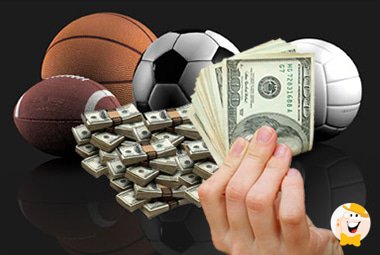
Some well-bankrolled individuals may act as a bookie in the most direct sense possible, which is by taking and paying out on bets as if they were an actual casino. Often, these would involve ties to an illegal sports betting syndicate operated by a large group working off of a collective bankroll and sharing profits. In those types of cases, one can expect to encounter much worse lines than if betting in Vegas.
No matter what the situation, the bookie is going to behave as though he is your friend. In some cases, the bookie may have started out as your friend and may still see himself that way. Sports betting is interesting in that two parties generally do not make a bet unless they at least think they have the best of it. With that said, two friends can engage in a friendly bet with one another and remain friends, so in that sense, maybe your bookie who started out as a friend of yours still actually is a friend.
Either way, for anyone who works through a bookie in an unregulated and unlicensed way, they can rest assured that the bookie is making money somehow or he/she would not be doing it. When it comes to illegal bookmaking, some of them may offer up actual access to the Vegas lines but require a membership fee of some kind to use their services. There are other bookies still who directly charge the players a percentage of their wins on individual bets.
Many illegal bookmakers (or groups thereof) will undergo actual financial risk and go to the effort to attempt to create a ‘Balanced book,’ to make their money. However, it is much more likely that they will either charge some commission on wins (directly) or will otherwise alter the odds that the player gets compared to where they transmit the player’s money to get a free roll.
Frankly, I don’t really know that any of this is fundamentally unfair. I have always maintained that a fair bet is any bet that both sides understand and agree to, so if a bettor knows that he is laying $120 to win $100 in order to pick his favorite team against a particular spread, as long as the bookie honors his end of the deal, it is a fair bet. If you want to bet me $10 at even money that a particular NFL team will score 60+ points in a game, I blindly accept your bet without hesitation. I am going to win that bet almost every time, but again, if you understand what it is you are betting, then I would not consider it unfair.
Unfortunately, there are a good many tactics that a bookie can do in order to hoodwink his players if he so desires. One example might be a bookie calling up his player and saying, “I’m sorry, my guy couldn’t get the bet in,” after the bet has actually been placed and the result is known or looks very likely. In the event of a win, the bookie gets paid on the win and simply returns the original amount bet to the player. Again, the bookie would inform the player only after knowing the result of the contest or with the result looking very likely.
That’s obviously a pretty extreme example and no bookie is going to pull that trick very often. Generally speaking, a bookie would only pull such a trick if one team jumps out to a huge early lead and the bookie can call his client and inform him of an inability to get the bet down before even have the game had been played. The bookie might even apologize later (especially if the team wins) and offer some amount, “Out of his own pocket,” to be added to the player’s account to make things right with him.
A bookie cannot pull such a trick on the same player with any great frequency, but there aren’t going to be very many near sure thing situations that the book will want to assume the action. Even if there were, if the bookie is somehow able to get every losing bet one of his players makes down, but then fails to get down say, eight out of ten winning bets, then the player is, of course, going to lose faith in the bookie and want his money back.
In addition to the fact that the bookie may well be getting a partial free roll on all of his player’s action to begin with, these rare sorts of situations invoking a failure to, ‘Get the bet down,’ may essentially be a 100% free roll on his customer. Given that there are any number of ways for an illegal bookie to con one of his players, it is not entirely unusual for such a person to embark on a long con. If you have a player bet $1,000 on a team at +3 (spread) and that team jumps out to a fourteen point lead in the first quarter, then the bookie can essentially make one of the best bets of his life!
Here is one of the coolest calculators I have ever seen as long as I lived.
Basically, that calculator enables you to put in a certain game situation and determine a particular team’s probability of winning. Basically what I have done is put in a Vegas line of +3 for a team leading by 14, the opponents have the ball and it is first and ten at their own 25 yard line. (Kickoff for a touchback, basically) There is 2:15 left in the first quarter:
The calculator spits out a win probability of 84.7%, which means that the team is even more likely than that to win OR cover the three points that they are given. The bookie, at this point, is essentially assuming his player’s bet (because he has to refund the player on the bet that, ‘Didn’t get down,’) now that the bet has a huge probability of winning.
The bookmaker can make all sorts of excuses in this situation. He might say that he was just tied up with something, he might say that his cell phone didn’t have service for a prolonged period of time and he just got to somewhere where service was available. (Putting your phone on Airplane Mode or shutting it off will give the appearance of no service if someone calls you) The long and short of it is that there will be some excuse made and the sharp actually gets to make an extremely late bet. The same winning bet that the player initially made.
Another angle that an illegal source of sports bets may work is a very simple one: Don’t pay your players. It would take some serious gumption (and I don’t mean that in a good way) but the bookie might talk about how his money is tied up for (insert excuse here) but everything is going to be taken care of and player funds will be available again shortly. He might blame something going on overseas, he might say that one of his accounts was somehow locked but it’s going to get fixed, the long and short of it is he will do anything to get the player to deposit more money with him in the meantime.
Sometimes the guy will be using player funds commingled with his money to place bets that he thinks are good and he will then lose both his money and that of his players. At that point, he’s not disappearing because he intends to make off with the money, he’s doing it because he flat out doesn’t have the money anymore.
There is also no device in place that would cause this independent taker of sports bets to be in anyway financially accountable for player funds to a higher agency. You may have heard the old saying, “If you hold someone else’s money long enough, you start to believe that it is your money,” that saying is a favorite of Bernie Madoff’s. At least, it was. The same thing can happen with a bookie, he might take just a little bit out of all of his player accounts across the board good and indeed intending it to be a loan, albeit one that the players don’t know about. The bookie might do that with the honest intention to pay it back, but eventually, the bookie himself feels the need to start gambling at a negative expectation against the lines available to him to try to do it.
The fact of the matter is that, absent any kind of licensing or regulation, the bookie is accountable to nothing and to nobody. There is nobody around who can audit his books at any given time and the only incentive he really has to be even somewhat honest is if he thinks business is doing well and growing. In some cases, it may always have been the intent of the bookie to play a long con, to pay out quickly and sometimes even toss out credit in order to get his players believing in him. “Neck minute,” BOOM, cell phone shut off and you can’t find the guy because he has absconded with the balances of all of his players.
This is the sort of sports betting that a player gets to be involved with simply because the Federal Government awarded themselves sole jurisdiction over the realm of sports betting and declared it illegal in all but a few states. Nevada, of course, unambiguously has legalized sports betting in every sense of the word while it is legal for a few other states to have what are known as, “Sports lotteries.” New Jersey had one year to act as a state in order to legalize sports gambling within its borders, but they did not act in time. Of course, New Jersey has now had an appeal to the United States Supreme Court declared that it will be heard in which they (and, by extension, other states) will challenge to now be awarded the right to have legalized and regulated sportsbooks.

Sports books are the biggest shining example of players having it better in a legalized and regulated environment.
Online Gambling:
The fact of the matter when it comes to those states that have some form of online gambling, such as Nevada for poker and New Jersey and Delaware for the full gamut of games, is that several players feel more secure at state licensed and regulated sites. The rules regarding those sites generally state that they must, in some way, be tied to a brick and mortar casino, so players feel confident playing there.
In the event of a dispute, players also have an agency with whom they are familiar, the New Jersey Division of Gaming Enforcement in NJ, for example, to whom they can levy complaints. When it comes to the state-regulated casinos, slow-paying and no-paying are simply not an option for the casinos and the casinos are also forced to honor all of their promotions.
The fact of the matter is that most online casinos already do that, and most online casinos are also licensed and regulated by a jurisdiction (not Costa Rica) that has actual teeth. In other words, players in those states and states with no regulated form of Internet gambling have almost as much recourse against the overseas sites as they would against a site based in their own state. The problem, of course, is that players really don’t always do the research to determine the avenues available to them for restitution if they believe they have been treated unfairly.
In addition to sites such as this one, the single best resource that there is for anything related to Internet casinos, players may also theoretically lobby a complaint with the regulatory body that licenses the online casino in question. While we do have access to casino representatives and others within the industry, and while a blacklisting here can spell disaster for an online casino, the regulatory bodies can also make things difficult for a casino who would treat players unfairly.
In my case, though, I would be lying if I said that, “The Ohio Gaming Commission,” doesn’t carry a little more clout with me than the “Kahnawake Gaming Commission.” That’s not to say that I wouldn’t play at a casino licensed by the Kahnawake Gaming Commission, I most certainly have, I’d play at any online casino at which I believed there is worthwhile expected profit and their reputation is strong.
Ultimately, I don’t necessarily put the category of non-state licensed and regulated online gambling as being quite as serious a matter as illegal sports betting. I believe that players willing to do at least a modicum of research are largely protected by sites such as this one in conjunction with the regulatory agencies that license the casinos. However, I would suggest that there are some individuals out there who are unwilling to play online AT ALL unless it is via a licensed and regulated casino by way of their own state, province or country.
If nothing else, it would at least expand the market a little bit. Furthermore, as I have said dozens of times, it would be a tremendous source of tax revenue for the states.
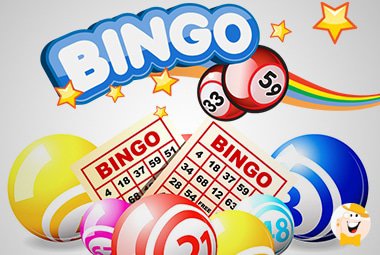
Bingo:
Wait, what?
Yes, bingo.
The vast majority of states allow for charitable Bingo and Bingo nights that serve to benefit non-profit organizations, such as churches. There are some states that, at least technically, do not even allow that with Utah and Hawaii being two examples. (Technically, NO form of gambling is legal in either Utah or Hawaii. Utah even specifically amended its codes to add that online gambling is also illegal!)
Many of these states for which charitable or non-profit gambling is legal to have various laws regarding the conduct of same. Some states, such as Texas, have a maximum amount that a given agency is allowed to win off of a particular event. Furthermore, states such as Texas also have laws that limit how many Bingo nights a specific agency may conduct weekly, monthly or annually.
There are also licensing procedures in several states for an entity to be authorized to offer Bingo nights, to begin with. The enforcement of same varies from state-to-state and municipality to municipality on how strictly the executive branch of government (ie: police) ensure that the coding and licensing procedures are being followed.
Why is non-casino Bingo a problem, then?
For one thing, some NPO’s and other entities do not watch the books closely enough and often pay for all of the Bingo implements as well as pay a, “Bingo Hall,” to host the Bingo nights on their behalf. The bingo halls have incentive only to make for themselves as much money as possible, and as a result, will often charge flat fees for rental of the hall as well as the use of their facilities and employees to conduct the games. In fact, a study in Texas conducted just a few years ago found that the majority of individual agencies to conduct Bingo actually lost money overall, though the operators of the Bingo Halls themselves did well enough.
Many entities are authorized to operate their Bingo games on their properties, for one example, churches in the State of West Virginia are allowed to do so and Bingo remains a more popular pastime in that state (Empirical observation) than it is in most others. The only problem is a certain minimum return on the total card sales is often advertised, but not met, and the players have no idea one way or another.
Again, I have personally observed a Bingo session in which less than 75% of the money I counted being bought in cards (and I know I didn’t even see all the money) was returned to the players in the form of prizes. Once again, I don’t really care (other than the fact that I wouldn’t play) because I understand that it is only a loosely regulated game in the first place and the records of the games are, shall we say, flimsy. Again, these games are mostly for the purpose of benefitting an NPO, school booster clubs often run them, so I don’t particularly mind the high holds...I’m just not going to play.
Actually, I do occasionally, ‘Donate,’ to the school boosters by playing Bingo, but I make sure only to lose the amount that I would have donated to boosters, anyway. They’re always going from door-to-door or showing up at events soliciting donations and I always have a tendency to find $10, or so, for them because I’m a sucker like that. At some point, I said to myself, “It would make more sense for me just to go to a Bingo event every once in a while and just play until I lose $10 or make $20. Even if these Bingo games are holding 25%+ that is less than the 100% they hold when I make a straight donation!”
Anyway, the point of the matter is that there are several casinos that offer Bingo in which the player is bucking a lower house edge. Although, as I mentioned in a previous editorial, Bingo is a dying game overall with only a few remaining strong locations left at which a good game can be found. That’s true in both licensed and regulated casino Bingo as well as NPO Bingo. The only venue in which Bingo still thrives more or less meaningfully is online, but that is because the holds are lower than they are in most live games and also because there is almost always a game available at a given Bingo site.
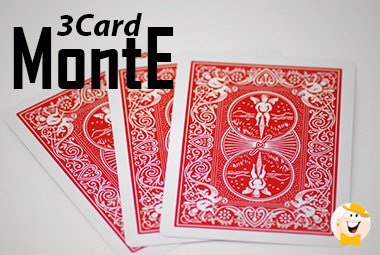
Table Games:
I would like to think that Three Card Monte is pretty universally recognized as a sucker game at this point, but there are probably still people that play it somewhere. Either way, there is no question that Table Games occasionally pop up here and there and are operated illegally.
For instance, this 2013 news story out of New York reports on over forty illegal betting underground locations being shuttered over eighteen months just in Brooklyn!
Among the locations was one in which several of the players had guns on them that they made money on by selling to the pawn shop upstairs from the (literally underground) location.
If there’s one thing that I don’t want to do it is gamble at an underground Craps table in Brooklyn. If there are two things that I don’t want to do they are gamble at an underground Craps table in Brooklyn and be surrounded by people toting firearms. Gambling and weapons are pretty much a Universally bad mix and a recipe for disaster.
For those of you who may think that all of these incidences consist of some guy and a couple of buddies in his basement shooting craps on a rinky-dink makeshift plywood table while sucking down Bud Lights, I strongly suggest you read the news article.
The fact of the matter is that many of these operations, in Brooklyn and elsewhere, are operations in which several games may be taking place at once and huge money is exchanging hands. The news story mentioned above makes reference to one location that had eight Mahjong tables going at a time in which food and drink were served.
The problem, of course, is not the gambling in and of itself, but the fact that the player is not guaranteed any fairness without some kind of regulatory body in place. Let’s imagine that you have a dispute with one of the operators of these games and you think there is cheating going on or that you were paid unfairly. You open your mouth to say something but look up to notice three or four really big dudes with their hands on the butts of the guns sticking prominently out of their shoulder holsters.
You might say, “I think I’ll be leaving now…”
The thing is, now they might be worried that you feel like you were taken for a ride and you are going to snitch about the illegal game going on. The guys involved in this game obviously do not want you to snitch about the game going on, so now they are going to need to convince you that you would do well not to go snitching on them. I’ll leave it to your imagination to decide how they might go about doing that…
The article also mentions the numbers games that I mentioned earlier, which are still going on. And, yes, they still offer a better return than the State Lottery!
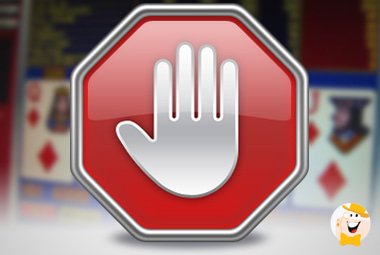
Electronic Games:
I am going to refer to, “Electronic Games,” categorically because there is much more to cover than just illegal slot or video poker machines. For example, one type of illegal electronic game (in most states) come by way of Internet sweepstakes parlors in which an individual pays, ostensibly, for the use of a computer and Internet services. What the person is actually paying for is the equivalent of gaming credits that can then be used to win items of value that are then exchanged for cash, sometimes at face value.
The idea that such operations had when they first opened is that they could skirt the anti-gambling laws that were in place essentially be referring to their activities as those of a, “Sweepstakes,” or a, “Raffle.” The first problem that such establishments ran into is that, in many states, you have to be a non-profit organization to even conduct raffles or sweepstakes for items of a particular value (or greater) in the first place. The second problem that they ran into was, of course, in the actual eventual paying of winners cash which virtually rubbed away any facade that the intent of the facility was something other than gambling.
The way that the sweepstakes cafes generally work is that a player will purchase the Internet time or Internet credits as well as the use of a computer in the facility. If the chances at the so-called, “Sweepstakes,” are not sold for direct cash for the use of the Internet and computer, then the plays may be sold in exchange for the purchase of a phone card, gift card or some other similar item.
The games played at these locations have largely indeterminate returns and anyone with even a cubic millimeter of gambling knowledge in his brain knows to stay away from such locations. There is absolutely nothing in place that regulates the payouts and there is nothing that ensures a fair game is being played. In fact, there’s a better than average chance that fair games are not always being played.
It would be theoretically possible, for example, for such an establishment to employ shills, which is just a term for people who are seen winning decent amounts in order to encourage other players. With the use of a shill, you may have winning results that are deliberately transmitted to the gaming device that person is using, and then they feign excitement and go up and cash out in full view of everyone. Naturally, this has the same effect that it does at a proper casino of giving the other players of electronic devices some degree of hope. It also creates a combination of the knowledge that it is possible to win combined with a tinge of jealousy in the brain. Either way, it serves as an indication that the reward center of a person’s brain may be very close to being stimulated if they just keep plugging away…
States such as Alabama and Florida have gone to great lengths, including cases tried in the highest courts of the state, to shut down such sweepstakes parlors. Many other states have taken similar action against them. The sad but true fact is that these locations generally only thrive in locations that are distant from any form of licensed and regulated commercial casino gambling, though there are some exceptions. Alabama, for instance, does not have any commercial casinos at all.
The sweepstakes machines essentially function in a manner very similar to a Class II slot machine in which they often have fixed prize pools that are paid out in a controlled way designated by a central server, or otherwise paid directly to a user deliberately. In other words, the games are not based on an actual random number generator of any kind and the slot game is not an actual slot game but just a really fancy method of displaying what is, to the computer, already a known result. In fact, many sweepstakes parlors found to be illegal tried to switch it up and say the result first, “You win xxxx,” and then show the corresponding slot spin. Of course, to think that would be successful to skirt the laws is patently ridiculous.
The fact of the matter is that the jurisdictions in which these sorts of parlors are illegal, or within a very dark gray area of the law, have denizens that would be better served by state licensed and regulated parlors and casinos. The fact of the matter is that most states have laws in place requiring that such games be carried out by way of random number generator, and perhaps most importantly, the vast majority of states (in fact, all gambling states) have laws that prescribe a certain minimum percentage return on every dollar bet.
That, of course, brings us to the patently illegal slot and video poker machines. These sorts of machines are found scattered across the country and in locations within states that have casinos or do not have casinos. These are comparable to the kind of games in bars in both West Virginia and Montana, but the main difference is that the games are not expected to correspond to any randomness. In fact, many of these sorts of games cycle through a pre-determined set of results.
Obviously, if the entire set of results is predetermined, then the amount of money returned to the player is also predetermined as no other set of results can possibly happen. Whether or not the player will cash out after winning money or will continue to cycle it through is something of a question mark, but the fact is that the establishment gets a certain profit for x amount cycled through.
Some machines operate on RNG’s, but those are in the minority when it comes to machines that are not licensed and regulated by any state agency.
There are also machines, such as Cherry Masters, that are believed to operate on an RNG type basis but tend to offer extremely low returns that would otherwise not be legal in states that have jurisdictionally regulated minimum returns.
Fortunately, states such as Pennsylvania are now in the process of attempting to legalize bartop games and parlor-type locations similar to those that can already be found in states such as West Virginia and Montana. West Virginia, similarly, is stepping up its Limited Video Lottery game by working to authorize a wider variety of games, many of which are thought to include progressive games.
In fact, there are already a few different Spielo devices in West Virginia that currently offer some Keno games with progressive jackpots as well as progressive slot games, such as Big City 5’s, but those machines are few and far between. By, “Few and far between,” I mean to say that I have been to literally hundreds of parlors throughout the state of West Virginia and I have seen only one such machine so far. There is an Owl Club located in Parkersburg, West Virginia at which I saw one of the Spielo machines to which I reference. I also have it from reliable sources that identical, or similar machines are spotted in other areas of the state.
What is interesting about the State of West Virginia, if they choose to authorize more such games (and if they gain popularity) is that it will represent truly casino-style games in the parlors. Many of the parlors had various video poker games, but unfortunately, the software that operates such games is considered obsolete and those games will actually all need to be replaced with something else, or reprogrammed, by a certain date. Many of the machines in the parlors that once had video poker games already do not because the operators have already adjusted the game inventory on the machines, or have switched out the units entirely.
Another fairly common type of machine, at least at one time, was so-called, “Games of skill,” in the State of Ohio. These are now considered patently illegal across the state, but a new crop of such games, of very questionable legality has now popped up in Pennsylvania. The company that provides those games is attempting to expand into more locations, but there is some question as to whether or not they will spread, especially if they are not declared to be legal.
The games of skill in Ohio only employed any kind in the loosest sense of the word. Similar to the product offered in Pennsylvania, the games would occasionally spin in a manner just like a slot machine, but would then give the player the ability to replace one of the symbols on the 3X3 grid with a wild symbol instead. The “Skill,” that allegedly is present in those games is to make the best possible decision on which square in the grid to replace with a wild. Obviously, the square that should be replaced is the one that would yield the highest payout, or highest expected payout in the case of free games.
There was another so-called, “Game of skill,” in Ohio in which the ‘Skill,’ aspect was simply not to play if the next spin would lose. How that game worked is that the player would have the ability to see what the next spin would be on a particular game of each individual denomination. If the next spin would result in a win, then the player should play. If it would result in a loss, then obviously, the best decision is not to play. Of course, players would either be oblivious to this fact or would play knowing the next spin would be a loser essentially wanting to see the result of the spin after that.
Those machines were once at a hotel that I used to manage in the State of Ohio, and the owners of the actual units would simply divide the profits from the machines with us 50/50. Of course, the machines offered poor returns and may have even paid out in a fixed cycle such as some of the machines mentioned earlier. Either way, they were good for me at one time simply because I would just wait for someone to play, and when that person was done, I would pop in a bill and play if the next spin was going to be a winner. I would obviously continue to play until the next spin was due to be a loser. Those machines were actually surprisingly popular and were good for a few extra bucks per shift for me, personally.
Obviously, no casino would offer such a machine because it would not satisfy the conditions that a state sets for randomness of the spin. In effect, the spin result cannot, by definition, be random if it is already known. Furthermore, even if such a machine could exist, most casinos would not allow their own employees to take advantage of the machines by playing them only if a winning result would come up next. Again, when the machines are unlicensed and unregulated, basically anything goes.
The Case for Regulation:
There are many individuals out there, particularly true Libertarians, who would just as soon that the state not have any regulatory involvement in the affairs of business. At least, they would want that the states should have very little regulatory involvement. I definitely appreciate any position that suggests that people should be allowed to do what they want with their own money, but in the case of casino gambling, where the potential to win is often as much illusory as it is real, I think some regulation is in order.
The fact of the matter is that any gambling environment operating on an unlicensed, unregulated and underground basis is susceptible to many different potential problems for players. This goes in both the actual gambling itself and affairs over and above the actual gambling.
The first thing is that gambling establishments that are operating unlawfully are not going to want to have their affairs made known to the authorities. The most profitable of these organizations will go out of their way to ensure that their presence is not known to the authorities. If they think that an individual is going to, ‘Nark,’ on them, then they may go as far as to threaten the individual, their family and perhaps even so far as murder.
It sounds like something out of a gangster movie, but the fact of the matter is that sometimes truth is stranger than fiction.
Beyond all of the pragmatic and non-gambling related issues that can arise when dealing with operators who are conducting their affairs unlawfully is the fact that the players themselves are also, in some cases, violating the laws of the state in which they reside. That is entirely a matter of state law as many states hold individuals acting as mere players blameless for any illicit gambling that is taking place, but some states do have laws that would apply to mere players and choose to enforce them.
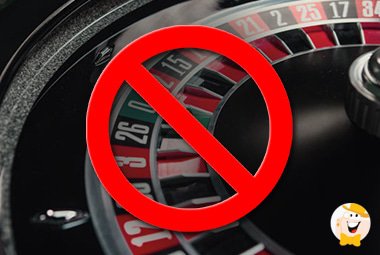
I obviously do not recommend conducting any illegal live gambling activity as either a player or an operator, but if you insist on doing so, then I cannot stress enough the importance of researching and understanding your state laws. The laws of a state as relating to operators and players vary pretty dramatically. For example, some states (again) do not hold mere players at fault at all, some states have it on the books that mere players can be fined, and players can also be jailed in a select few states.
When it comes to game fairness and the safety of a player’s money, once again, a regulated environment for live gambling will always be superior to an illegal one. If a player is somehow ripped in an illegally operating game, other than turning in the operators (which can come with its own consequences) they really have no means of recourse available to them. For example, imagine going to a State Lottery Commission and reporting an illegally operating device that you, as a player, can prove is operating in a non-random way. The State Lottery is simply going to say to you, “We don’t operate or oversee that device and cannot do anything for you other than to suggest you contact the police.”
When it comes to licensed and regulated physical casinos, some measures are in place to ensure that the games are operated fairly. Furthermore, there is a remedy for any game that can be found to have not operated fairly and for any player who was paid improperly or not at all during his/her gambling.
The other case for legalizing it all is that it makes sense for the states to do so, financially. As if the player protection aspect of it wasn’t enough, states that legalize all of the forms of gambling that they can, and that private businesses or public corporations can operate profitably, will be able to collect revenues from those gambling operations. An important consideration when it comes to a tax on Gaming Win revenue is that Gaming Win differs pretty dramatically from gaming profits. The operators do not have to be profitable for the jurisdiction to collect taxes that are revenue-based. The establishment just has to win more money to the players than it loses, which is basically a guarantee.
I conducted a lengthy study on our sister site, Wizard of Odds, which I will link to in the comments if anyone asks that took a look at whether or not the legalization of casinos hurt a state’s lottery revenues overall. The study was aimed at determining whether any of the states that legalized commercial gambling would have been better off, from a tax revenue standpoint, to have just a lottery instead. Predictably, my study found that the states with the largest amounts of tax revenue per resident by way of gambling had generally legalized as many forms of gambling as possible. In most cases, the State Lottery made the same amount of money (or more) as it had prior to the commercial casinos being legalized! Even when a state’s lottery revenues fell off (again, referring to the actual lottery and not the Lottery Commission) the casino gambling tax revenues made up for it and then some.
States do not always make the best decisions when it comes to their micromanagement of gambling operations, and you can see my editorial on greyhound racing in West Virginia for more information on that and a great example.
The state does not always get it right every time, and Governor Jim Johnson (who is an idiot) vetoed the bill that would have eliminated the Greyhound Breeders Development Fund, but a regulated environment is better for everyone than an unregulated one.
It is better for the players, it is better for the operators who work legally and it is better for the revenues of the jurisdictions who license it.
The only people who a regulated environment does not benefit are the criminals.
Conclusion:
It’s probably not going to happen, and it will take a long time if it does, but the Federal Government of the U.S.A. should leave states to handle all of their gambling affairs individually. The states should then proceed to legalize and regulate every possible form of gambling and then tax the revenues derived thereof accordingly. The markets will decide whether or not particular forms of gambling can survive profitably in a regulated environment.
While many people think that the Government is overly obtrusive on their personal affairs, sometimes, just sometimes, the Government does succeed in protecting them. Unfortunately, many people have and will continue to gamble, protected or not, fair game or otherwise.









